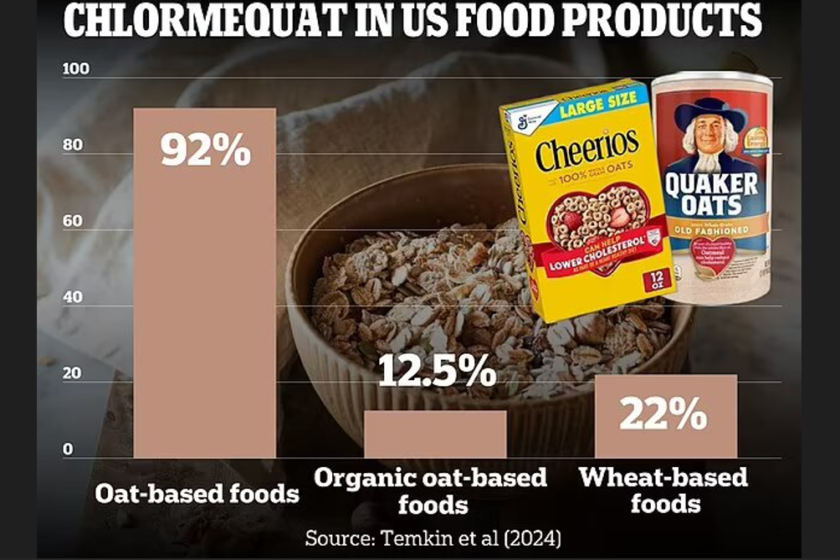CHICAGO — A little-heard-of pesticide linked to infertility in animals is showing up in the overwhelming majority of oat-based foods sold in the United States, including popular cereal brands Quaker Oats and Cheerios.
The chemical, chlormequat, was detected in 77 of 96 urine samples taken from 2017 and 2023, with levels increasing in the most recent years, a new study by the Environmental Working Group finds.
Further, chlormequat was found in 92% of oat-based foods sold in May 2023, including Quaker Oats and Cheerios, according to the research published Thursday in the Journal of Exposure Science and Environmental Epidemiology.
Some studies have shown chlormequat can damage the reproductive system and disrupt fetal growth in animals, a cause for concern as to “whether it could also harm humans,” EWG stated.
Environmental Protection Agency regulations allow chlormequat to be used on ornamental plants only, not food crops, grown in the U.S.
However, its use has been allowed since 2018 on imported oats and other foods sold across the country, and the EPA is now proposing to let chlormequat be used on barley, oat, triticale and wheat grown in the U.S — a plan the EWG opposes.
Organic fare is a safer bet, with just one of seven organic samples found to contain low levels of chlormequat, EWG said.
“Until the government fully protects consumers, you can reduce your exposure to chlormequat by choosing products made with organic oats, which are grown without synthetic pesticides such as chlormequat,” according to the nonprofit advocacy group.
Cheerios maker General Mills and Quaker Oats, a division of PepsiCo, did not respond to requests for comment.
By KATE GIBSON/CBS News
If you enjoy reading the Virgin Islands Free Press, please let John know by sending $25.00 via PayPal to: johnfmccarthy807@msn.com

